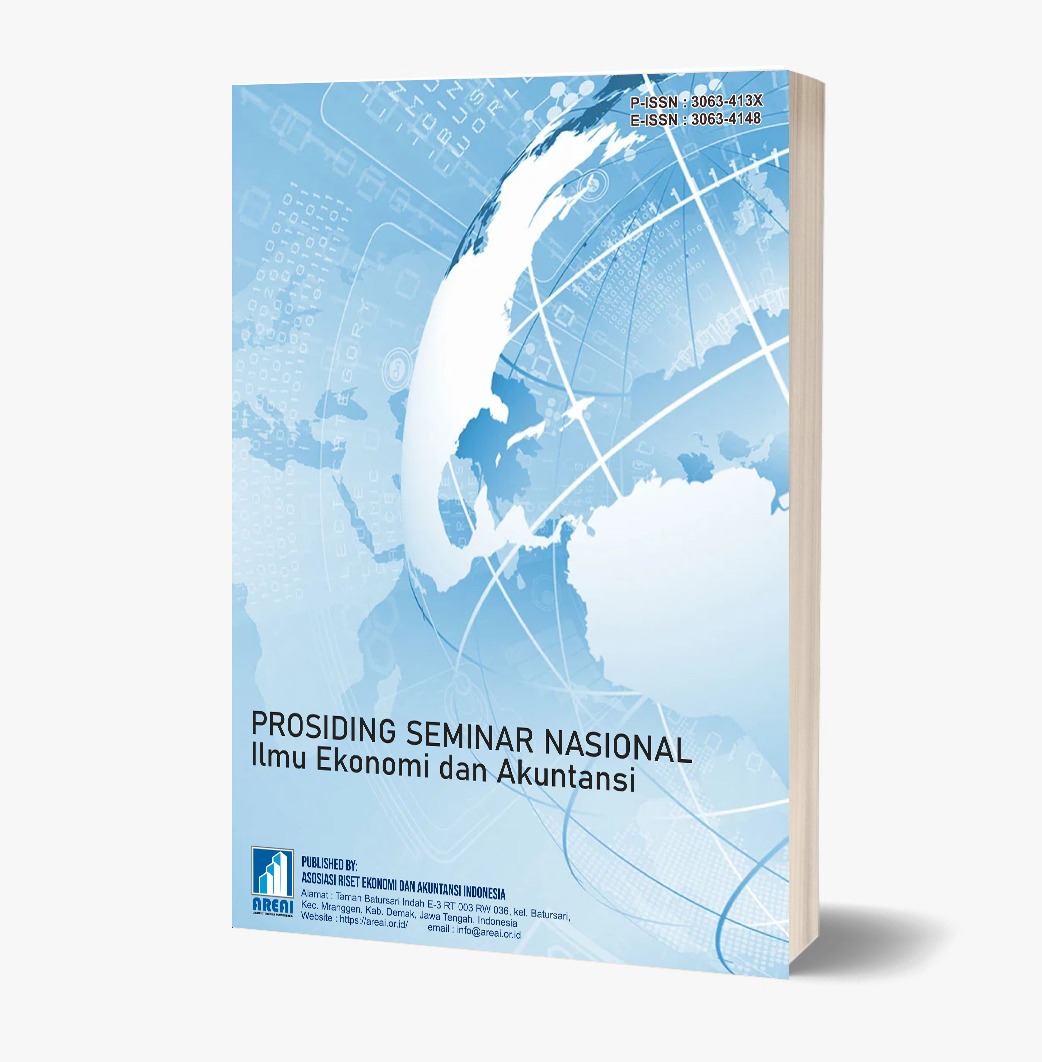Optimalisasi Penduduk dalam Pemanfaatan Sumber Daya Alam Berbasis Ekonomi Islam untuk Pembangunan Berkelanjutan
DOI:
https://doi.org/10.62951/prosemnasieda.v1i2.72Keywords:
Natural Resources Utilization, Islamic Economy, Sustainable DevelopmentAbstract
The purpose of this study is to find out the utilization of natural resources managed by residents based on Islamic economics as sustainable development. This study uses a qualitative research approach. This type of research is Field research. This research was conducted at the Karo Indah Natural Bath located in Namu Ukur Sel., Sei Bingai District, Lalat Regency, North Sumatra. In this study, the primary data used was sourced from interviews, namely with the tourism manager of the Karo Indah Natural Bath and interviews with traders and the community around 2 people. The data collection technique in this study is through interviews and direct observation. The data analysis technique in this study is data reduction where the researcher will describe how to optimize the population in utilizing natural resources in improving sustainable development (SDGs) in Namu Ukur Langkat village from an Islamic economic perspective. The results of the study show that the Karo Indah Nature Bath tourist attraction in the perspective of Islamic economics is in line because there is a sale and purchase contract that is allowed in Islam and the norms that exist in society and do not contradict the law related to Islamic economics. Where this is seen from the business with an increase in halal income is carried out in a good way and for a good purpose as well. Then, the residents of Namu Ukur village also use natural resources well and not excessively, in the sense that residents always maintain the cleanliness and beauty of the natural resources used. In this case, the community's economy has also increased due to the existence of long business opportunities by utilizing these natural resources.
Downloads
References
Arfah, A., & Arif, M. (2022). Pembangunan ekonomi, keadilan sosial dan ekonomi berkelanjutan dalam perspektif Islam. Pembangunan Ekonomi, Keadilan Sosial Dan Ekonomi Berkelanjutan Dalam Perspektif Islam, 5(2).
Ayatina, H., Mashabi, I., Alifa, H. L., Zahara, W., & Makfi, M. M. (2021). Peran hukum keluarga sebagai penggerak pembangunan berkelanjutan di Indonesia. At-Thullab: Jurnal Mahasiswa Studi Islam, 3(2). https://doi.org/10.20885/tullab.vol3.iss2.art1
Hidayat, T. (2020). Peran pembangunan berkelanjutan terhadap pengentasan kemiskinan perspektif ekonomi Islam. Endocrine, 9(May).
Intan Veronica, D., Fasa, M. I., & Suharto. (2022). Pemanfaatan sumber daya alam terhadap pembangunan berkelanjutan dalam persepektif ekonomi Islam. Jurnal Dinamika Ekonomi Syariah, 9(2). https://doi.org/10.53429/jdes.v9i2.391
Khaery, M. (2021). Penerapan green economy berbasis maqashid syariah dalam mewujudkan pembangunan berkelanjutan (Studi Kasus pada PT Vale Indonesia Tbk). Skripsi.
Mudita, I. (2021). Peran teknologi kelautan untuk pembangunan kelautan berkelanjutan. Prosiding FIT ISI, 1.
Mustofa, U. A., Hariyanda, M., & ... (2022). Etika pembangunan berkelanjutan menurut perspektif ekonomi Islam. ... Economics Journal, 5955.
Shabri, H., Edgina, I. M., & Said, M. (2022). Sistem nilai dalam pembangunan ekonomi adil dan berkelanjutan: Analisis aksiologi Islam. Tamwil, 8(1). https://doi.org/10.31958/jtm.v8i1.5852
Sugiyono, Prof. DR. (2019). Buku Sugiyono, metode penelitian kuantitatif kualitatif. In Revista Brasileira de Linguística Aplicada, 5(1).
Wartoyo. (2022). Kontekstualisasi kesetaraan gender dalam pembangunan ekonomi berkelanjutan perspektif ekonomi Islam. El-Jizya: Jurnal Ekonomi Islam, 10(2). https://doi.org/10.24090/ej.v10i2.7056







